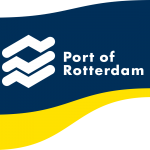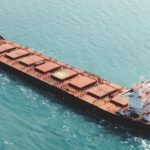These last months, EU supply and logistics chains have been under severe pressure but have been able to ensure the security of supplies of goods and equipment to citizens and hospitals thanks to a mobilization of private port companies and terminals, and their workers. Although COVID-19 has disrupted the normal functioning of companies, the resilience of the cargo handling and logistics related sector has allowed to carry on the implementation of digitalization and the work on standardization.
During their General Assembly meeting held on December 3rd, 2020, FEPORT members re-elected Mr Gunther Bonz as President of FEPORT and thanked him for his continuous engagement towards FEPORT.
The agenda of General Assembly meeting included several important topics. Among others, FEPORT members discussed about Terminal Industry Committee 4.0[1] (TIC 4.0) and commended the work that has been achieved so far by its members. Standardization and data sharing will be crucial both for the digitalization of the port industry as well as for the decarbonization of the maritime and port ecosystem.
FEPORT is a strong supporter of iTerminals, the EU funded project that will implement the 4th Industrial Revolution concepts – i.e. digitalization, data sharing thanks to standardization and use of IoT – in the Container Port Terminal Industry.
With respect to environmental performance of port terminals, attendees exchanged about the current certifications (ISO 14001, EU Eco-Management and Audit Scheme (EMAS) and others) that have been obtained by many terminals and agreed to better promote them.
FEPORT is looking forward to the new Sustainable and Smart Mobility Strategy and hope that it will support the port industry’s efforts to contribute to the objective of the Green Deal while preserving the jobs of EU workers and allowing the sector to remain competitive.
FEPORT reiterates its call to EU regulators to restore the level playing field within the internal market in terms of taxation. This is as important as the discussion with respect to the effects of public subsidies granted to foreign companies operating in the EU and competing with private EU companies.
“2020 has been a difficult year for all and has definitely shown how essential transport workers are in general and port workers in particular. FEPORT remains committed to the European Sectoral Social Dialogue where important issues regarding the future of the sector are being discussed. However, the support of the EU Commission and the European Parliament will be crucial to make progress on important issues such as the safety of port workers on board of ships, the level playing field within the maritime logistics chain as well as the competitiveness of the sector”, underlined Mr Gunther Bonz, Chairman of FEPORT.
Source: Hellenic Shipping






